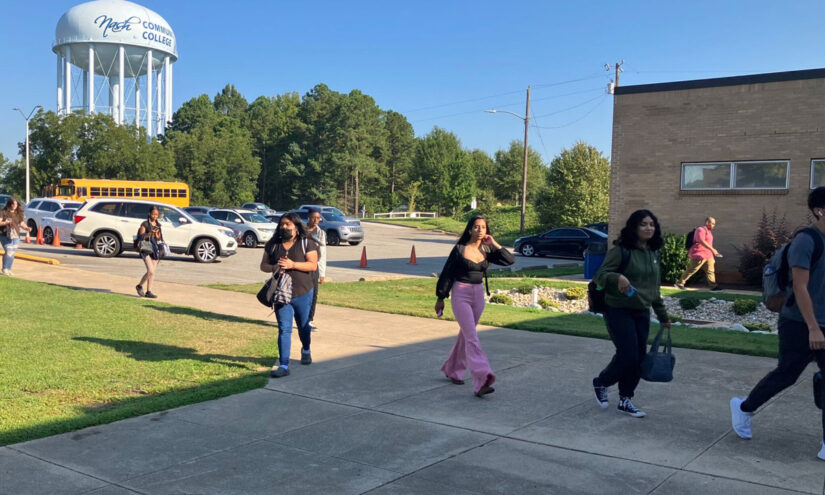During this summer, a team of students from MIT embarked on a journey to the sou …
North Carolina Conference Emphasizes Significance of Dual Enrollment
Emma Wordsmith

Higher education leaders from various parts of the country came together virtually on Feb. 28-29 for a dual enrollment conference organized by different North Carolina entities, including the N.C. Community College System (NCCCS), the N.C. Department of Public Instruction (DPI), the University of North Carolina at Greensboro’s Early College Research Center, and the RAND Corporation.
With over 30 specialized sessions, the conference delved into the advantages of dual enrollment, the importance of equity, and strategies to enhance and broaden the programs.
NCCCS President Dr. Jeff Cox highlighted the significance of dual enrollment in fostering student potential and expanding postsecondary access, stressing North Carolina’s leading position in this domain and the growing interest to expand further.
North Carolina’s dual enrollment landscape has a rich history dating back over 30 years, with the inception of the Career and College Promise (CCP) program in 2011. The CCP initiative allows high school students to acquire college credits at no cost, leading to tangible outcomes like certificates, diplomas, degrees, and job-ready skills.
Recent efforts by NCCCS have concentrated on fortifying and broadening CCP, offering pathways in college transfers, career and technical education (CTE), and Cooperative Innovative High Schools (CIHS). The strategic plan for 2022-26 aims at boosting high school enrollment and statewide access.
The participation in dual enrollment programs has surged, with NCCCS serving over 78,000 students during the 2022-23 school year. Notably, CCP engagement among N.C. high schoolers has doubled from 6% in 2014-15 to 12% in 2020-21, illustrating the popularity and effectiveness of the program.
State Superintendent Catherine Truitt highlighted the critical role of dual enrollment in student success, stressing its pivotal contribution to enhancing public schools, drive innovation, and ensuring students’ readiness for post-graduation pursuits.
Dr. Karen Stout from Achieving the Dream urged conference participants to rethink access to dual enrollment programs, emphasizing the imperative to broaden program designs and forge diverse partnerships for enhanced student outcomes.
The conference emphasized several key themes for consideration:
- The importance of Career and Technical Education (CTE) pathways in fostering equitable dual enrollment access.
- The importance of aligning dual enrollment programs strategically with other collegiate offerings.
- The significance of establishing a shared vision among partners and crafting a cohesive work plan for achieving desired goals.
- The focus on equitable expansion, advocating for culturally-sensitive outreach efforts, early engagement with prospective students, and localized advising initiatives.
Stout underscored the centrality of equity in fortifying dual enrollment, stressing the need for concerted efforts to bolster student success through inclusive programs and policies. The conference discussions underscored the critical role of dual enrollment in promoting equitable educational opportunities.


